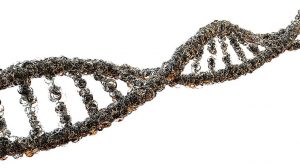Definition
noun, plural: large-scale mutations
(genetics) A type of mutation several nucleotides of a gene within a large chromosomal region; a mutation at a chromosomal level
Supplement
Mutation is a change in the nucleotide sequence of a gene or a chromosome. It may be classified into various ways. One of these classifications involves classifying mutations based on the effect of mutation on the gene structure: (1) small-scale mutations and (2) large-scale mutations. Small-scale mutations are a type of mutation where one or few nucleotides of a gene are affected. In large scale mutations, as the name implies, the mutation affects a higher level of the genetic material. In particular, large-scale mutations involve a change in the chromosome).
Large-scale mutations may be further classified as follows: (1) amplifications (or gene duplications), (2) deletions of large chromosomal regions, and (3) chromosomal inversions. Amplifications are mutations where there are multiple copies of chromosomal regions. Deletions on a large scale are mutations involving the loss of genes within a large chromosomal region. Chromosomal inversions are a rearrangement within the chromosome and are of two types: pericentric (i.e. chromosomal inversions including the centromere) and paracentric (i.e. inversions that do not include the centromere).
Compare:
- small-scale mutation
See also:





